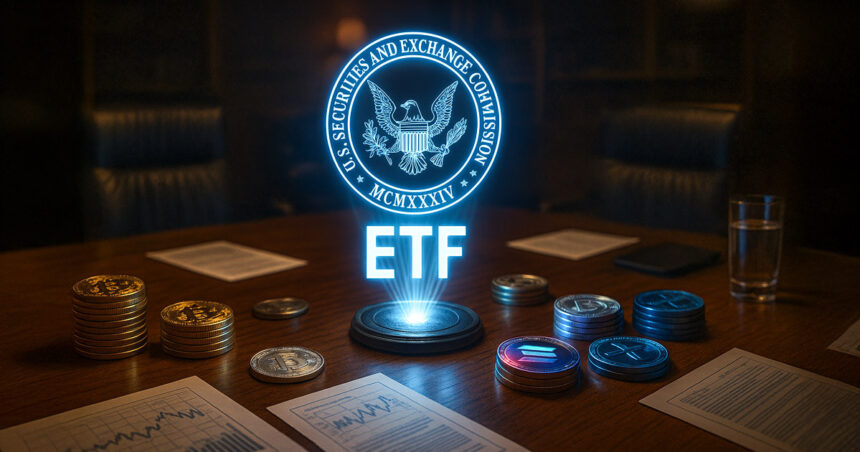In a strategic move that has captured the attention of the cryptocurrency landscape, the Securities and Exchange Commission (SEC) has chosen to delay its decisions on three pivotal crypto exchange-traded funds (ETFs) as of September 10. The delayed applications include BlackRock’s innovative Ethereum staking proposal alongside filings from Franklin Templeton for spot XRP and Solana ETFs.
The SEC’s postponement aims to allow time for the development of a standardized listing framework that could potentially smooth the path for future crypto ETF approvals. This initiative is framed by speculation that a batch decision in October may see these applications receiving the green light. Bloomberg’s ETF analyst, James Seyffart, highlighted earlier in April that October could emerge as a significant month for approvals, as numerous filings approach their respective deadlines.
The foundation of the SEC’s current strategy revolves around collaboration with U.S. exchanges to create a uniform listing framework for token-based ETFs. This framework seeks to eliminate the necessity for individual rule-change requests for qualifying assets, thereby simplifying the approval process. Under this proposed structure, ETF sponsors could bypass the standard Form 19b-4 process when the underlying tokens satisfy specific criteria.
Once implemented, sponsors would be required to submit registration statements on Form S-1 and adhere to a standard 75-day review period before listing their products, marking a shift away from the more complex existing processes. Key metrics such as market capitalization, trading volume on exchanges, and daily liquidity are under consideration as qualification thresholds. This aims to reduce approval timelines and eliminate the often iterative comment cycles that currently exist between the SEC and applicants.
Adding to the excitement in the ETF landscape, Eric Balchunas indicated on September 9 that the long-awaited “memecoin ETF era” is set to commence, with a Dogecoin ETF scheduled for launch on September 11 under the 40 Act structure. Balchunas suggested that this launch could mark a significant moment in ETF history, potentially becoming the first in the U.S. to encompass an asset created with no real utility— a nod to Dogecoin’s origins as a tribute to an internet meme.
The successful launch of a Dogecoin ETF could inject further momentum into the approval process for other pending applications. Seyffart previously noted that the current landscape is bustling with 92 crypto ETF applications spanning a variety of assets including Solana, XRP, and Litecoin, alongside staking iterations of existing products. Notable issuers such as VanEck, Grayscale, Canary, Bitwise, and Franklin Templeton are involved in these filings, showcasing a mix of established cryptocurrencies and burgeoning tokens.
As the SEC reshapes its regulatory approach, the outcomes of these pending applications could hold significant implications for the future of cryptocurrency investments in the United States.








